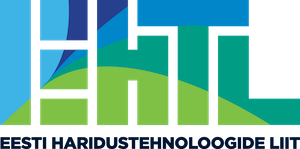The first half of the day took place at the Institute of Educational Sciences (HI) of the University of Tartu. In his greeting from the University of California, Berkeley campus, educational technology professor Margus Pedaste called for thinking about what the meaningful future of digital technologies will be and how to enable sustainable development, collaboration and deep learning.
Trainer Martin Mark talked about such an everyday thing as habits. What are they, which ones do you wish you had, which ones do you want to get rid of? Together we reviewed several behavior models and worked on our tiny habits (ABC anchor of tiny habits, new tiny action-celebration).
HI doctoral student Liisi Pajula talked about the role of technology in sustainability. For this, first of all, the concept of “sustainability” was defined and we thought together about what role technology plays in our lives in general. It then looked at how we as individuals, communities and society can relate to technology in a way that supports sustainability.
Technology is often portrayed as something highly technical, mainly the field of work for engineers. Emanuele Bardone from HI’s Educational Technology Center challenged this notion and argued that the actual design and deployment of technologies in education also depends on visions of the future in which education, together with teaching and learning, is rethought in the light of scientific and technological achievements. Some visions turn out to be more dominant and widespread than others, but regardless, according to Emanuele Bardone, students and their teachers should be given the opportunity to express their vision of education as part of a democratic practice. To this end, Emanuele Bardone introduced the “future workshop” method, with which schools can shape their own visions of future education.
After a break in the greenhouses of the university’s botanical garden, the winter school continued in the university’s Delta Center.
Ana Valdmann, Marki Tihhonova-Kreek and Kelli Hanschmidt from the university’s research school (Teaduskool) introduced the activities of the research school in developing students’ talents.
Anne Krull from Tartu Applied College gave an overview of the project “Possibilities of student engagement with the online tool AudIT”.
Instructional designers Diana Lõvi and Marju Piir and teaching skills consultants Airi Niilo and Katri Kütt shared their experiences of effective cooperation in supporting teaching staff and talked about opportunities for educational technologists to grow.
In the artificial intelligence workshop, Veiko Hani introduced ChatGPT and the possibilities of its use. Experiences were shared and discussed.
The later conversation continued in the Naiiv restaurant on Emajõgi.
Organization team: Marju, Diana, Merlin, Tony
Relevant references:
presentation materials on the winter school website & Worksup
Mart Noorkõivu’s photos
Heikki Eljas photos
feedback form
